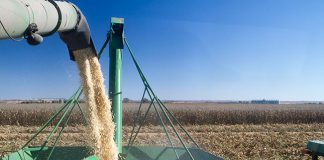The Agricultural Produce Agents Council (APAC), which manages the FPAFF, was the defendant in the case lodged by Canelands Estate CC.
Rob McCarthy, one of the lawyers who represnted Canelands Estate, said that from 5 September, 2008, to 9 March, 2009, the now-defunct fresh produce agency, Hoofstad Marketing, failed to pay Canelands the proceeds due from banana sales Hoofstad carried out on its behalf.
When Canelands’ repeated efforts to extract the money from Hoofstad failed, the farming business sought financial redress from the FPAFF.
According to Judge El Goldstein, who presided over the case, the FPAFF was established in terms of the Agricultural Produce Agents Act 12 of 1992 in order to reimburse producers for direct losses suffered by them as result of theft or other dishonest conduct committed by a fresh produce agent.
McCarthy said Canelands was forced to institute legal action against APAC after the council refused to pay out the nearly R1 million sum from the FPAFF, arguing that Canelands had not queried the required payments from Hoofstad within 5 days of each banana sale during the period.
“This five-day period payment query rule was just made up by APAC and Judge Goldstein disagreed with it,” said, McCarthy. “The judge acknowledged that Canelands had adhered to everything that the Act required of it regarding its business with Hoofstad. He accordingly ruled in Canelands’ favour.”
In addition to the financial sum demanded by Canelands, the APAC was ordered to pay the banana company’s costs of suit on the High Court scale, as well as the costs of the senior legal counsel, the judge, the case venue, transcribing the record of evidence, and the costs incurred in the High Court.
McCarthy pointed out that Hoofstad still allegedly owed some seven other fresh produce suppliers more than R2 000 000 for sales conducted on their behalf. However, due to various factors, including running out of money for legal representation, they had bowed out of trying to recover their losses from the FPAFF. Only Canelands had pursued the case to its recent conclusion.
Lizel Pretorius of APAC stressed that fresh produce farmers needed to also be active in fostering trust relationships between themselves and their agents. She added that growers had a legal obligation to at all times limit their losses and in doing so also reduce risk to the FPAFF.
“This obligation, among others, includes the duty not to allow a fresh produce market agent to continue to breach the provisions of the rules with regard to transactions handled on behalf of his principal, being the farmer, who is represented by that agent. A farmer should therefore give timely notice of any misconduct committed by a fresh produce agent to APAC,” said Pretorius.
The APAC pointed out that Canelands had continued to send fresh produce to Hoofstad for almost eight months despite not having received any payments or weekly reports on sales, as required by law. The APAC also indicated that it was of the view that a reasonable person would have known within at least two months that Hoofstad was not going to affect payment and should then have made necessary alternative arrangements.
Meanwhile, documents on APAC’s website revealed that, in 2011, an internal disciplinary found Rahda Maharaj and Ashok Persotham of Hoofstad guilty of a number of charges, including failure to pay various fresh produce suppliers their due proceeds of sale. Maharaj was ordered to pay APAC a total of R90 000 in fines, while Persotham was fined R180 000.
View the full outcome of the APAC disciplinary hearing against Maharaj and Persotham, as well as Judge Goldstein’s ruling in favour of Canelands and APAC’s full response to Farmer’s Weekly’s questions.











